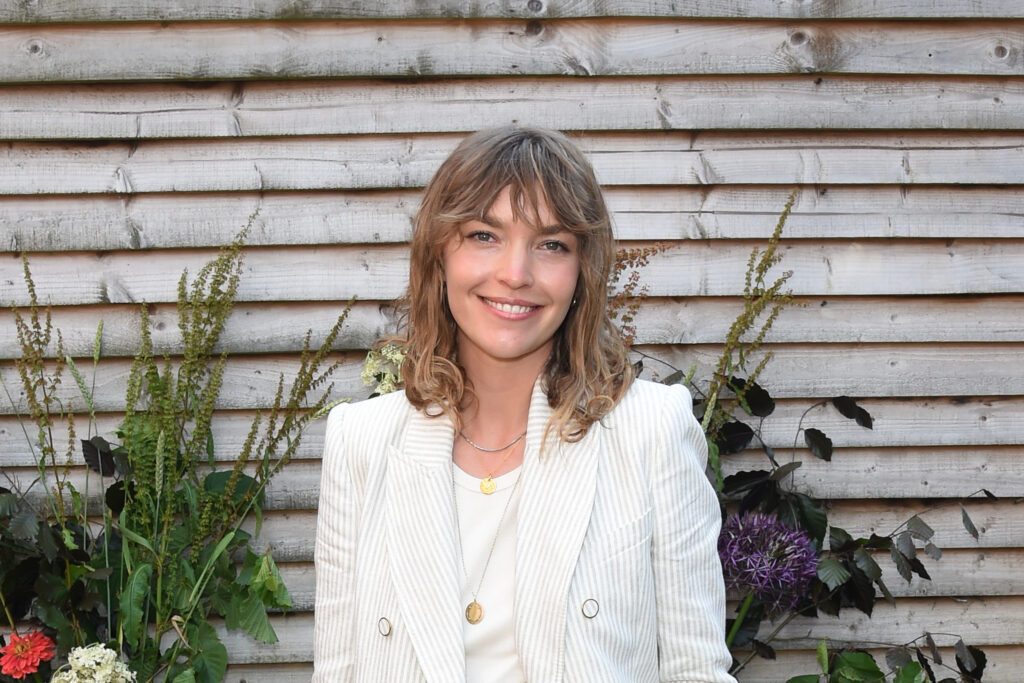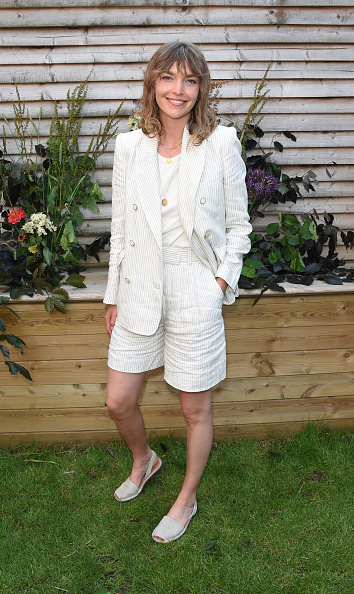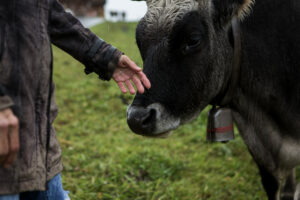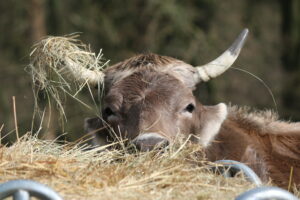Regeneration of the earth through biodynamic farming
Activist Arizona Muse speaks out for Biodynamic Farming as a solution to climate change
Today we’re with Arizona Muse, founder of DIRT.Charity and one of this year’s guest speakers at the Agriculture Conference of the Goetheanum. Her charity DIRT, Foundation for the Regeneration of Earth, aims to regenerate the Earth’s soils through Biodynamic Farming with a special aim to help brands acknowledge and reconcile their involvement in creating the environmental problems they’re now racing to solve.
Arizona’s environmental activism began after years of modelling when she realised that she didn’t know enough about the materials her clothes were made from, nor the people who made them. Ever since, she has been on a fascinating journey educating herself and others about the truth behind materials, how things are actually made, who makes them and the impact this cycle has on planet Earth. Although the environmental impact of the fashion industry was the starting point, her activism quickly evolved into becoming her life’s mission to raise awareness about the climate emergency and to encourage governments, brands and individuals to put sustainability at the forefront of their agenda.
Arizona engages in public speaking on key climate issues, consults to help brands incorporate sustainability into their core strategy, is on the advisory board of The Sustainable Angle, collaborated with the likes of Extinction Rebellion and Fashion Revolution, became Greenpeace’s Oceans Ambassador and Aveda’s first ever Global Sustainability Advocate.
DIRT is the culmination of Arizona’s activism. Everything we need is grown for us in soil by farmers, not only the food we eat but also the fibre in the clothes we wear, the furniture in our homes, the leather on our car seats, it all starts in the ground beneath our feet, thanks to farmers. The Biodynamic Farming movement is a gem of a solution to climate change, and there is an immense opportunity for Biodynamic Farming to repair the damage caused by conventional farming methods that have been deployed over the last 70 years.
Guest speaker Arizona took some time to answer our questions on what inspires her about Biodynamic farming, and to tell us more about her charity DIRT:
Why do you see biodynamic farming as a solution to face the climate crisis?
I, and many others, see Biodynamic Farming as a solution to climate change because it has the potential to care for and steward all land, providing humanity with all the things we need while regenerating soil and renewing social culture.
How do you think quality can be improved through biodynamic farming?
Personally, I have experienced great enrichment in my life since I started engaging with Biodynamics. Not only does Biodynamic Farming produce the most richly nutritious food, but it is also a practice that can have an immensely powerful effect on any human heart, mind and soul that encounters it. We are in a moment in human history when this, more than ever before, is what we need.
What is the vision of DIRT.Charity regarding the future of farming?
I like to imagine a world where all hospitals, schools and prisons are sourcing Biodynamic food for their patients, children, and inmates. Where even the armies of our nations are procuring vast amounts of Biodynamic food, and fibre for their uniforms. I am eager to see a future where Biodynamic Farming becomes mainstream.
Thank you for your inspiring words!
DIRT.Charity is continuously funding new projects worldwide relating to Biodynamic Farming. For more information, have a look at DIRT’s website and DIRT’s YouTube channel where you will find beautiful educational videos about what Biodynamics is and how it can help the world.
More on the Agriculture Conference 2022:
The Agricultural Conference, organised by the Section for Agriculture of the Goetheanum, is taking place from 2 to 5 February 2022. This year’s conference stands under the theme: “Quality through biodynamics: perceive, experience, develop”. The subject of Quality has been an important matter for the biodynamic movement since its inception.
There is a steady increase in the amount of land farmed biodynamically, specialised farms are in the process of conversion, and biodynamic products are popular with the public and in demand on the market. Besides the quantity of a product, its quality is always important: after all, food and drink should taste good and benefit our health. But what exactly is biodynamic quality? How is it produced during cultivation and how is it developed or possibly even improved by processing? What is the situation with the trade in biodynamic products and goods, and who has access to these products? What significance does this have for human development?
These questions will be addressed and worked on in depth during the conference in lectures, workshops, forums and working groups, enabling each participant to acquire new knowledge, insights and ideas for their work.
For more information and registration, please have a look at the Section’s website.
Contact: Clara Behr, Head of Policy and Public Relations
clara.behr@demeter.net
Dornach, 03.02.2022




